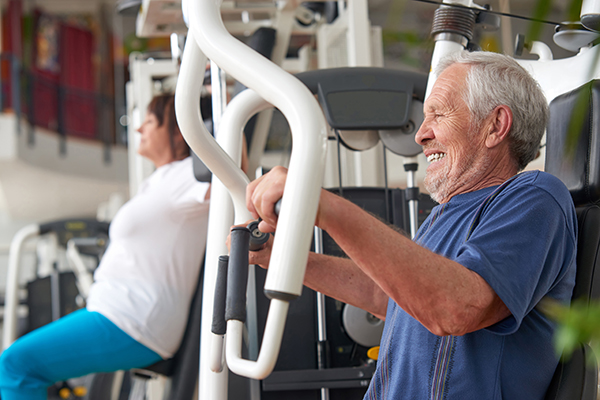
As a matter of fact, one in 20 senior adults claim they have a profile and are active on major dating sites like Tinder, signifying that getting gray hair, wrinkles, and maintaining their pensions does not preclude to a stagnation of libido.
The survey also showed that many seniors still feel a spring in their step like someone in their 20s; as many as nine in 10 respondents who were between the ages of 60 and 70 think of themselves as not remotely “past [being a teenager].”
For 69 percent of the respondents, having a positive outlook in life contributes to their feeling of youth; meanwhile, 58 percent of the respondents say that as long as you can drive, you are still young. Also, more than three quarters say they're in good health – 10 percent claim they are in perfect form while one in five (19 percent) says they wear a fitness tracker to make sure they get enough exercise every day.
The survey also revealed that 42 percent of the respondents have no intention of changing their active lifestyles – they plan to still engage in the activities that they indulged in when they were in their younger years. (Related: Bone density sharply enhanced by weight training, even in the elderly.)
Today's seniors are Internet-savvy
The older generation is saying it is not so backwards as compared with the older people of a different generation – so much so that 45 percent of the respondents are adept at using the Internet – with one in five maintaining an account on and regularly visiting Facebook and one in ten using WhatsApp to chat with family and friends.
Only four percent of the respondents say that they have no idea how to conduct transactions or even browse websites online.
Other ways in which old-age pensioners (OAPS) feel young include looking much younger and dressing much younger than they actually are; traveling regularly; having a great sex life; still being active in sports; still indulging in nights out; and still looking good in swimsuits.
Another study hints that older men might be more into sex than older women are
A different study postulates that as women age, they might be more worried, anxious, or afraid of having sex – this is because they think it will no longer be pleasurable and in fact would hurt.
The study, which was published in the journal Menopause on Wednesday, October 11, talks about how genitourinary syndrome – a blanket term for the various bladder and vaginal problems that hound the lives of menopausal women – can affect women's libido, or lack of it.
Surveying more than 1,500 women agesd 55 and up, the researchers have found that 45 percent of menopausal women “usually” or “always” feel pain when having sex, and fear of that pain can cause them to turn away from sex altogether.
Read more stories such as this one at MindBodyScience.news.
Sources include:
Please contact us for more information.























